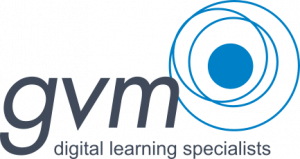The world’s never the same after a pandemic. After the black death killed half the population of Europe, peasants learned new skills to allow them to replace deceased workers and escaped serfdom forever. The 1918 “Spanish ‘Flu” led to the creation of the WHO – a worldwide coordinated approach to improving health.
There is a widespread and somewhat surprising degree of optimism already – there are already over 12 million results in a google search for COVID silver lining. From my perspective, the opportunity to learn from this disaster is manifest. Whether we’re rethinking our use of technology at work, reinventing the way we travel or rediscovering our communities we’ll emerge a different society.
And that’s where training comes in.
It’s always been incumbent on our trainers to anticipate social and economic change in order to prepare people to navigate those changes. It’s our job to be looking beyond the lock-down to the needs of learners in what will inevitably be a different world.
Questions to consider include:
- Given the inevitable changes to the way we work and travel, what new skills will we need?
- Given that we will emerge more fearful and traumatised, what soft skills will be needed?
- What can we take from the renewed sense of public duty? What changed perspectives will we see in people who found ways to help neighbours and who downloaded a tracing app that would have been unthinkable just months earlier?
- How fast can we (and must we) learn lessons given the rate of global and business change?
- Can our current L&D processes and outcomes compete in a climate of yet more accelerated change?
- How can we build on the ICT crash course we all undertook in lock-down? Grandma’s a zoom expert now. Are you?
- To keep pace, how can we make training more efficient, self directed and agile?
Yet, I am hearing the same message again and again at the moment “That project’s on hold. I’m too frantic coping with everything to change. Call me when the world’s back to normal”. They’ve got an awfully long wait ahead…
I prefer to see the exciting new world we’ll rebuild together as an opportunity to create, to innovate and to improve. And as a trainer, I want to lead it.
A lot of the solution will come from within – our natural curiosity, our knowledge of best practices and our love of sharing knowledge. Some will come from the learners themselves – a group who will have changed in ways that deliver opportunities to re-engage with them.
Still more will come from technology. For example, despite it being a tired old concept, mobile learning has remained obstinately marginal… until we locked 23 million Australians in houses with their phones for company.
The emergence of Learning Experience Platforms – tools designed specifically to improve learners’ experiences of our teaching – could not have been more timely. Similarly the Experience API (xAPI) is all about using people’s experiences in a more holistic approach to training.
Both of these are emerging at just the right time to catch this wave.
One thing that is clear is that organisations who think they are confronting the most dramatic change during the pandemic are in for a shock.
I don’t want to downplay the reality that the current economic shutdown is cruel. However we must not lose sight of the fact that what we’re looking at now is the temporary calamity. We could not have prepared for it. We can prepare for the permanent change that will follow it.
